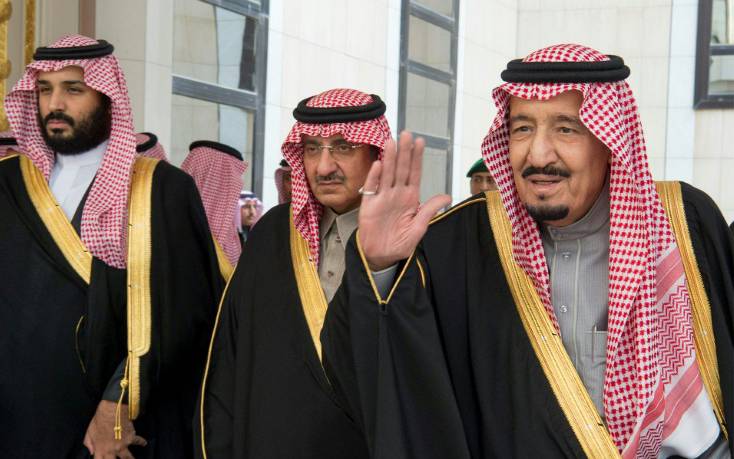×
The Standard e-Paper
Join Thousands Daily

Saudi King Salman bin Abdulaziz (R), Crown Prince Mohammed bin Nayef (C) and deputy Crown Prince Mohammed bin Salman, pictured in late 2016. [Image: AFP]
Saudi authorities have detained three princes including King Salman's brother and nephew for allegedly plotting a coup, three sources told AFP Saturday, signalling the de facto ruler's tightening grip on power.